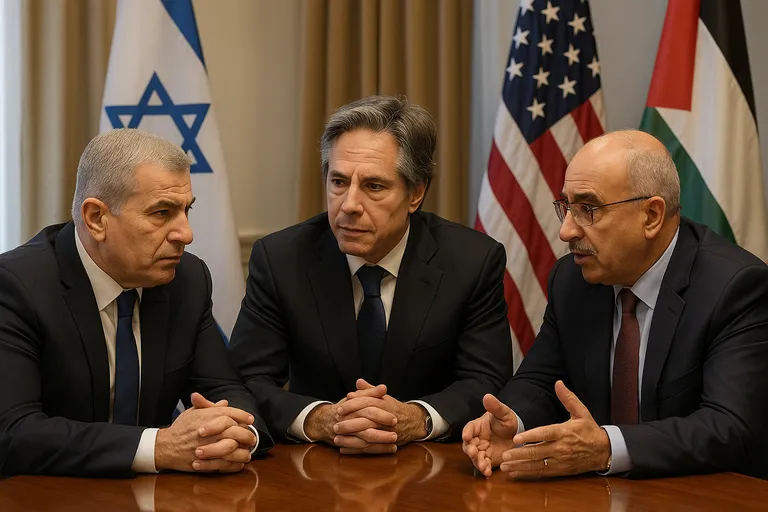Amid ongoing conflict and complex regional diplomacy, Israel’s Foreign Minister Gideon Saar stated that there were “some positive signs” in the effort to restart intensive cease-fire negotiations with Hamas, a day after former U.S. President Donald Trump announced progress on a proposed deal.
Saar emphasized that Israel is “eager for talks to resume as soon as possible”, pointing to a renewed push led by the United States to break the months-long deadlock in Gaza.
🕊️ The Cease-Fire Proposal: What We Know So Far
The potential deal, announced by Trump earlier this week, would reportedly:
- Establish a 60-day cease-fire between Israel and Hamas
- Free 10 living hostages still held in Gaza
- Return 18 bodies of deceased Israeli hostages
- Result in a prisoner exchange involving Palestinian detainees
While the exact terms of the agreement have not been officially released, Hamas has confirmed that it is considering the U.S.-backed proposal.
🧑💼 Diplomacy in Motion: “Proximity Talks” Planned
Foreign Minister Saar indicated that if discussions resume, they would likely begin as proximity talks — a diplomatic approach where mediators shuttle between parties to work out specifics without direct negotiations.
Qatar and Egypt are expected to play key roles in delivering the terms and facilitating progress between Israel and Hamas.
🇺🇸 U.S. Involvement Deepens
The momentum toward renewed negotiations follows Trump’s recent announcement that Israel had “agreed to conditions to finalize” the cease-fire deal.
President Trump is scheduled to meet with Israeli Prime Minister Benjamin Netanyahu next week in Washington, their third meeting in under six months, suggesting that the Biden–Trump foreign policy handoff is entering a new phase.
⚠️ Broader Context: Iran, Bombings & Nuclear Tensions
The diplomatic push comes just days after the U.S. and Israel conducted joint airstrikes on Iranian nuclear facilities. In response:
- Iran suspended cooperation with U.N. nuclear inspectors
- The Pentagon issued a new report estimating the bombing campaigns set back Iran’s nuclear program by several months
The Gaza cease-fire talks and Iran’s nuclear situation are becoming increasingly entangled — shaping a complex web of regional power, diplomacy, and risk.
🔍 Why It Matters
This moment could mark a turning point in the nearly two-year-long Gaza conflict. A successful cease-fire agreement may:
- De-escalate regional violence
- Deliver long-awaited relief to hostage families
- Re-open channels for long-term diplomatic solutions
But with Iran, Hezbollah, and internal political divisions all in the background, nothing is guaranteed — and the eyes of the world remain on Washington, Tel Aviv, and Gaza City.
By ✍️ Yorlinda Ramirez - MicuPost Team



